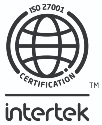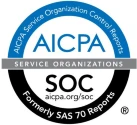MGA's, adding value, or adding cost?

In part one of his MGA blog opinion series, James Elliott, Sales Executive for INSTANDA, documents views and opinions from various perspectives within the market, on what the future holds for MGAs.
In 2019, MGAs in the UK wrote £4.7 billion worth of premium – around 10% of the country's general insurance GWP. The growth within this market in recent years, coupled by the recent new Chartered title for MGAs released by the CII earlier this year, clearly indicates that MGAs are becoming an increasingly established part of the industry’s landscape.
To many carriers, an MGA can be an avenue into a market that they wouldn’t have been able to economically access themselves, providing new customers and consequently additional revenue. When things are good in this model, everyone’s a winner – not least the end-insured, who often receives niche cover that would’ve been difficult to find elsewhere and an underwriter who truly understands their risk.
So, are MGAs adding value, or adding cost? The answer is of course, very much dependent upon who you ask.
Over the last 12-18 months, there has been an increasing level of scrutiny placed on MGAs (particularly those sourcing paper from the Lloyd’s market, as noted in the Insurance Insider’s “MGA Review 2019”), as those providing the capital look to see whether every mouth being fed within their distribution chain is earning their piece. This process is only likely to intensify in the near future as the industry reacts to the extraordinary events happening worldwide, and carriers are forced to ensure that their ships are as watertight as possible.
Much of this scrutiny seems to have been focused on the costs of using an MGA, shining a spotlight on their operating expenses. In general, it seems as though the underwriting capability within these organisations is held in high regard – of course, without this then an MGA is expensive from a carrier’s perspective regardless of operational or distribution costs, given the inevitable poor performance and claims that transpire. However, unless the MGA applies this underwriting expertise in an efficient manner, then regardless of their books’ performance, it can still end up providing unattractive returns.
It feels as though frustration around operating costs for an MGA are often compounded by the fact that there are indeed several advantages an MGA should have over a carrier when it comes to efficiency, due to their agility. Although it may be a bit of a sweeping generalisation, MGAs typically tend to be significantly smaller and younger than those providing the pen, and as such should have the ability to react quickly and nimbly to external factors – whether this may be shifts in consumer demand, new regulation, or technological breakthroughs.
This was highlighted in Altus’ ‘Growth and Innovation’ Report 2020, which specified that “the players most bullish about growth are the newbies with less legacy and more funding (Insurtechs), and the agile end of capacity provision (MGAs).” It is widely acknowledged that the reduced internal ‘red tape’ within these intermediaries means that strategic decisions should be made significantly quicker than in the global carriers that they are often born out of.
Another advantage, as highlighted by Paul Rich, (MD of Motosi Consulting, and recognised delegated authority expert), is the “simplicity of their technical architecture”; they should be tied to a much less complex structure, and should therefore be able to distance themselves from costly and inefficient ‘legacy platforms’ that often inhibit innovation within larger insurers. Nonetheless, this simplicity does not mean that MGAs should be willing to accept reduced capability – indeed Paul highlighted that there are modern solutions available which come at a reduced cost (often SaaS models), but still provide functionality that make them a “powerful platform upon which to base a business”.
If a modern MGA is not utilising these advantages then it is likely to find that its competitive advantage diminishes, and as Paul succinctly summarised; if an MGA cannot write business in a ‘better’ way than their capacity provider, then there is no reason for that MGA to exist – the underwriting function should (and will) simply be taken in-house.
It is clear to see that as we move forward, particularly in these testing conditions for the industry, there is going to be increasingly little space in the market for inefficient distribution, as stakeholders look to question the value of each link in the chain. However, for those MGAs who can future-proof themselves and demonstrate their worth, the opportunities are still substantial, and the benefits are there to be seen for all involved.
James Elliott, Sales Executive, INSTANDA – MGAs
These articles are a commentary based upon not just my experiences and interactions, but also views from several other perspectives in the market. If you are reading this and would like to contribute some thoughts to one of the following articles, then I’d love to hear from you:
E: james.elliott@instanda.com
M: 07712551517





